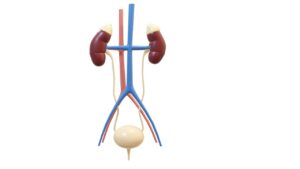Prostate cancer is one of the most prevalent forms of cancer among men worldwide. It develops in the prostate gland, a crucial part of the male reproductive system responsible for producing seminal fluid. While prostate cancer is common, understanding its risk factors, symptoms, prevention strategies, and treatment options is vital for early detection and effective management.
Understanding Prostate Cancer
Prostate cancer typically develops slowly and may not exhibit symptoms in its early stages. However, as the cancer progresses, symptoms such as difficulty urinating, blood in urine or semen, erectile dysfunction, and discomfort in the pelvic area may arise. Various factors contribute to the development of prostate cancer, including age, family history, ethnicity, and lifestyle choices.
Age is a significant risk factor for prostate cancer, with the likelihood of developing the disease increasing with age. Men over the age of 50 are at a higher risk, and the risk further escalates after the age of 65. Additionally, individuals with a family history of prostate cancer, particularly in close relatives such as fathers or brothers, face an elevated risk. Ethnicity also plays a role, with African American men being at a higher risk compared to men of other ethnicities.
Prevention
While some risk factors for prostate cancer, such as age and family history, are beyond control, adopting a healthy lifestyle can help reduce the risk. Regular exercise, maintaining a healthy weight, and consuming a balanced diet rich in fruits, vegetables, and whole grains can contribute to overall prostate health. Furthermore, some studies suggest that certain dietary supplements, such as lycopene found in tomatoes, may have protective effects against prostate cancer.
Early Detection
Early detection is crucial for effective treatment and improved outcomes in prostate cancer. Screening tests, including the prostate-specific antigen (PSA) test and digital rectal exam (DRE), can help detect abnormalities in the prostate gland before symptoms manifest. Men should discuss the benefits and risks of screening with their healthcare providers, particularly if they are at higher risk due to age, family history, or other factors.
Treatment Options
Treatment for prostate cancer depends on various factors, including the stage and aggressiveness of the cancer, as well as the individual’s overall health and preferences. Treatment options may include active surveillance, surgery, radiation therapy, hormone therapy, chemotherapy, immunotherapy, or a combination of these approaches. The goal of treatment is to eliminate or control the cancer while minimizing side effects and preserving quality of life.
Treatment by surgery using Transurethral resection of prostate tumor
Conclusion:
Prostate cancer is a significant health concern for men, but with awareness, early detection, and advances in treatment, many individuals can effectively manage the disease and lead fulfilling lives. It is essential for men to prioritize their prostate health by understanding risk factors, adopting healthy lifestyle habits, and seeking regular medical check-ups. By staying informed and proactive, men can take control of their prostate health and reduce the impact of prostate cancer on their lives.


